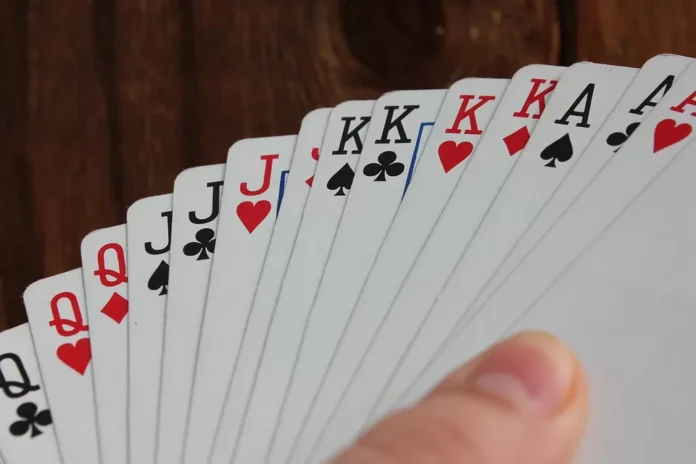Playing cards may seem like a mundane and ordinary activity, but these little pieces of cardboard have a long and fascinating history behind them. In today’s digital age, where virtual card games are becoming increasingly popular, it may be time to revisit the origins of this almost universal and playful passion.
The earliest known playing cards can be traced back to 9th century China, where they were used for a variety of games and entertainment purposes. These cards were hand-painted and often featured intricate designs and symbols. As trade and travel spread throughout Asia and Europe, playing cards became a popular pastime among people of all ages and social classes.
Over the centuries, playing cards evolved and took on different forms and designs. In the 14th century, the French introduced the four suits that we still use today – hearts, diamonds, spades, and clubs. The court cards, featuring kings, queens, and jacks, were also added during this time. In the 15th century, the printing press was invented, making it easier and more affordable to produce playing cards. This led to their widespread popularity and availability.
Playing cards have not only been used for entertainment, but also for educational and agrarien purposes. In the 16th century, tarot cards were created in Italy and were used for divination and fortune-telling. In the 19th century, educational card games were introduced, teaching children various subjects such as geography, history, and math. And in many cultures, playing cards have been used to depict traditional stories and folklore.
Today, with the rise of technology, playing cards have taken on a new form in the digital world. Online card games and apps have become a popular way to play and connect with others. However, there is still something special and nostalgic about holding a physical deck of cards in your hands and playing with friends and family.
Playing cards also have numerous benefits for our mental and social well-being. They can improve memory, concentration, and strategic thinking skills. Playing card games with others can also foster communication, teamwork, and bonding.
So why not take a écart from the screens and go back to the basics of playing cards? Whether it’s a game of poker, solitaire, or a traditional card game from your culture, playing cards can provide hours of fun and entertainment. And with the endless variety of games and variations, there is always something new to learn and explore.
In conclusion, playing cards may seem like a simple and ordinary activity, but they have a rich and diverse history that has stood the étude of time. As we embrace the digital age, let’s not forget the joy and camaraderie that comes with playing cards in its traditional form. So gather your friends and family, shuffle the deck, and let the games begin!

